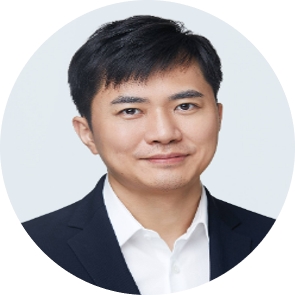Keynote Speakers

Tulika Mitra
Vice Provost (Academic Affairs)
Provost's Chair Professor of Computer Science
National University of Singapore
Editor-in-Chief of ACM Transactions on Embedded Computing Systems
Tulika Mitra is Vice Provost (Academic Affairs) and Provost’s Chair Professor of Computer Science at the National University of Singapore (NUS). She received her PhD from the State University of New York (SUNY) at Stony Brook in 2001. Her research focuses on the design automation of smart, energy-efficient, safety-critical embedded computing systems. Several of her works have received best paper award and nominations in premier international conferences. Some of her honors include IEEE Computer Society Distinguished Contributor 2022, IEEE CEDA Outstanding Service 2021, IEEE Distinguished Visitor 2018, and Indian Institute of Science Outstanding Woman Researcher 2017. She has served/serving as Editor-in-Chief of ACM Transactions on Embedded Computing Systems (2020-), Member of the ACM Publications Board 2019-20, General Chair of Embedded Systems Week 2020, and General/Program Chair of International Conference on Computer-Aided Design (ICCAD) 2020-21.
Title: Energy-Efficient CGRA Accelerators: Intelligence at the Edge
Abstract: The Internet of Things (IoT) system architectures are rapidly moving towards edge computing where computational intelligence is embedded in the edge devices near the sensors instead of the remote cloud for time-sensitivity, security, privacy, and connectivity reasons. At present, the limited computing capability of power, area constrained edge devices severely restricts their potential. I will present software-defined Coarse-Grained Reconfigurable Architecture (CGRA) accelerators as a promising approach to offer close to fixed-functionality ASIC-like energy efficiency while supporting diverse applications through full compile-time configurability. The central challenge for CGRAs is efficient spatio-temporal mapping of the applications expressed in high-level programming languages with complex data dependencies, control flow, and memory accesses to the accelerator. We approach this challenge through a synergistic hardware-software co-designed approach with (a) innovations at the architecture level to improve the efficiency of the application execution as well as ease the burden on the compilation, and (b) innovations at the compiler level to fully exploit the architectural optimizations for quality and fast mapping.

Juin J. Liou
Shenzhen University, China
IEEE Fellow
Juin J. Liou received the B.S. (honors), M.S., and Ph.D. degrees in electrical engineering from the University of Florida, Gainesville, in 1982, 1983, and 1987, respectively. In 1987, he joined the Department of Electrical and Computer Engineering at the University of Central Florida (UCF), Orlando, Florida where he held the positions of Pegasus Distinguished Professor, Lockheed Martin St. Laurent Professor, and UCF-Analog Devices Fellow. Currently, Dr. Liou is a chair professor at Shenzhen University, China. His research interests are electrostatic discharge (ESD) protection design, modeling and simulation, and characterization.
Dr. Liou holds 18 patents and has published 13 books, more than 320 journal papers (including 21 invited review articles), and more than 260 papers (including more than 110 keynote and invited papers) in international and national conference proceedings. Dr. Liou received ten different awards on excellence in teaching and research from the University of Central Florida (UCF) and six different awards from the IEEE. Among them, he was awarded the UCF Pegasus Distinguished Professor (2009) – the highest honor bestowed to a faculty member at UCF, IEEE Joseph M. Biedenbach Outstanding Engineering Educator Award in 2004 for exemplary engineering teaching, research, and international collaboration, and IEEE Electron Devices Society Education Award in 2014 for promoting and inspiring global education and learning in the field of electron devices. His other honors are Fellow of IEEE, Fellow of IET, Fellow of Singapore Institute of Manufacturing Technology, Distinguished Lecturer of IEEE Electron Device Society (EDS), Distinguished Lecturer of National Science Council, and Chang Jiang Scholar Endowed Professor of Ministry of Education, China – the highest honorary professorship in China.
刘俊杰, 特聘教授,博士生导师,IEEE fellow,IET Fellow,教育部海外名师,教育部春辉学者。毕业于美国佛罗里达大学电子工程专业。原工作单位为美国中佛罗里达大学电子工程专业,终身讲席教授,副院长。目前工作单位为中国深圳大学电子信息工程学院。集成电路可靠性中心主任。研究方向为集成电路和电子器件可靠性设计,仿真,与建模。

Yu Wang
Tsinghua University, China
IEEE Fellow
Yu Wang is a Professor in EE Dept, Tsinghua University. He received his B.S. degree in Tsinghua University, China in 2002, and then Ph.D. degree with honor in NICS Group, Electronics Engineering Department, Tsinghua University in 2007, supervised by Prof. Huazhong Yang (Tsinghua University) and Prof. Yuan Xie (Penn. State University). Prof. Wang serves as the Chair of the Department of Electronic Engineering in Tsinghua University, from 2020. Prof. Wang's research interest ranges from EDA to Architecture/Application Co-design, mainly focuses on Energy Efficient Hardware Computing System Design, Brain Inspired Computing System on Emerging Devices, Parallel Circuit Analysis, Low Power/Reliability-aware System Design Methodology.
汪玉,清华大学电子工程系长聘教授 、系主任,清华大学信息科学技术学院副院长,清华大学天津电子信息研究院院长 ,北京深鉴科技有限公司联合创始人。长期从事智能芯片、高能效电路与系统研究,ACM SIGDA执行委员会成员, ACM FPGA技术委员会亚太地区唯一成员。共发表论文310余篇,IEEE/ACM 杂志文章50余篇,谷歌学术引用10,900余次。先后获得中国计算机学会青竹奖、德国洪堡奖学金(Alexander von Humboldt Fellowship),国际设计自动化会议40岁以下杰出创新奖 (DAC 2018 Under 40 Innovators Award)、中关村高聚工程高端领军人才奖,CCF科学技术奖技术发明一等奖等荣誉。曾获得 ASP-DAC 19、FPGA17、NVMSA 17、ISVLSI 12 最佳论文奖,以及10次国际会议最佳论文奖提名。




